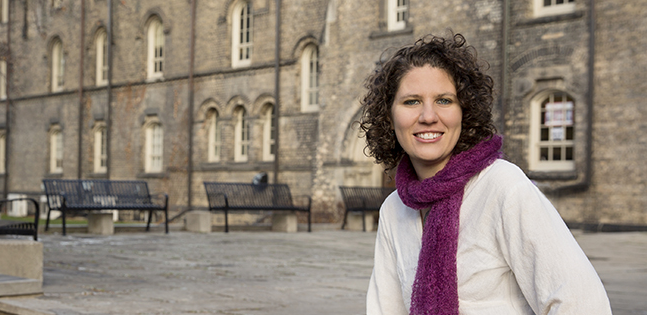Vardit Lightstone won an M.A.A.Sh Scholarship and the Marcia Koven Award for Best Student Paper “Traditional Innovation: An analysis of the folk literature of Yiddish speaking immigrants”. Congratulations to Vardit!
A large number of Yiddish speaking, Eastern European Jews immigrated to Canada between the years the late 1800s and early 1900s in response to an aggressive immigration policy instituted by the Canadian government as well as a series of pogroms in Eastern Europe. These immigrants were confronted with the task of adapting to new social, cultural, economic, and physical environments. Often the first Eastern European Jews to settle in Canadian cities or farming communities, these immigrants were faced with the challenge of adapting to the Canadian, physical and conceptual, landscape. Scholars have reflected on the ways these migrants adjusted to their new realities socially, politically, and creatively. In my paper I discussed the ways Yiddish speaking immigrants adapted to their new lives in Canada by innovating the folk literary material they learnt in Eastern Europe.
As an example of the ways these migrants innovated folk literature, I focused on folk tale types which the author Falek Zolf used in his memoir, Oyf Fremder Erd (On Foreign Soil) (Winnipeg: 1945). Zolf emigrated from Poland to Canada in 1926, and his memoir is therefore a story of migration. His use of folk literature in is informed by, and relates to, his migrant experiences. I chose two folktales usages from Zolf’s memoir, each of which illustrates a different way Zolf creatively innovates Eastern European Jewish folk literature. Through his innovations Zolf, like other Yiddish speaking immigrants, made the folk literature relevant to a new Canadian reality, while maintaining the folk literary tradition – and through the tradition, a connection with Eastern European Jewish culture and identity. By adjusting and adapting Eastern European Jewish folklore to their new Canadian context, these immigrants created and expressed new, unique Eastern European Jewish-Canadian identities.
 Department of Germanic Languages & Literatures University of Toronto
Department of Germanic Languages & Literatures University of Toronto
